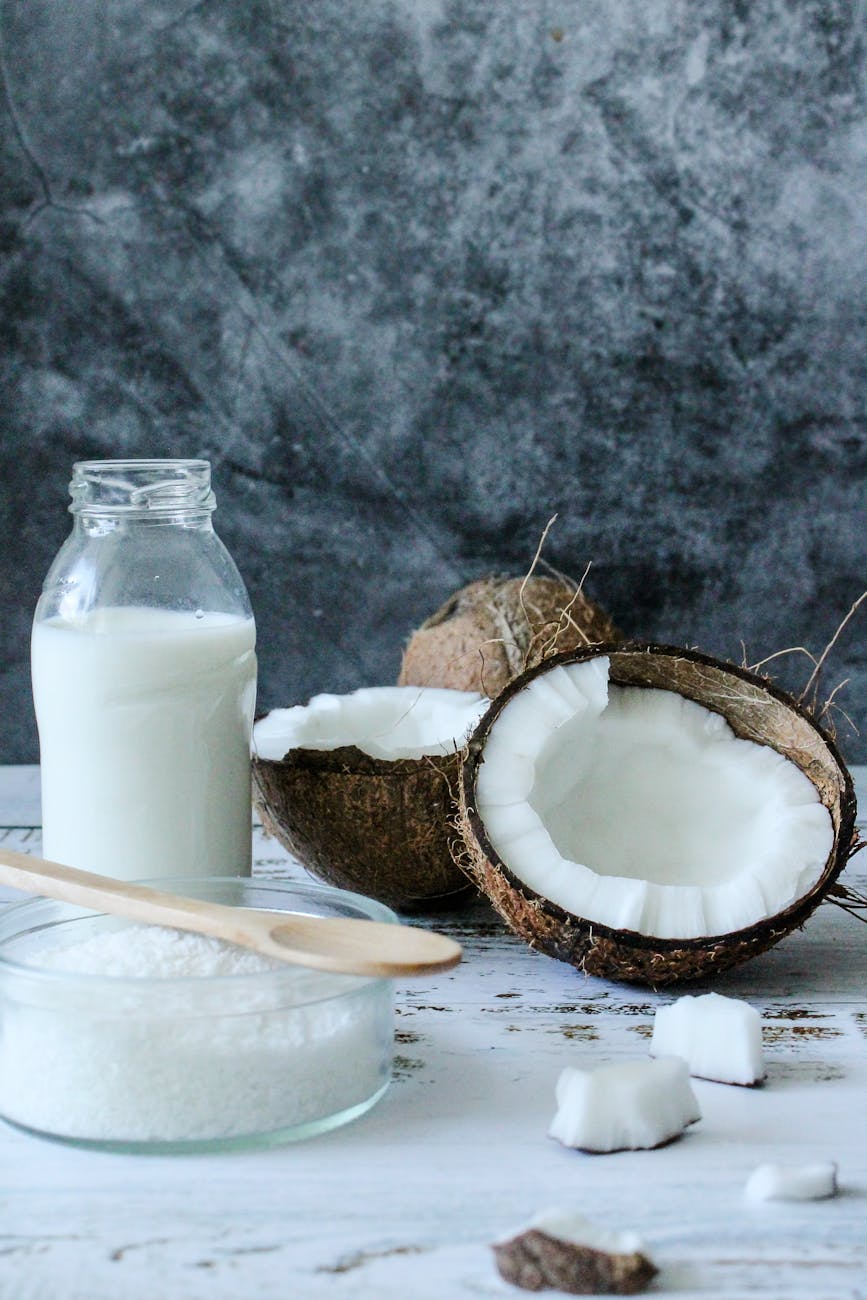The Wonderful World of Coconut Milk: A Healthy Dairy Alternative
Coconut milk, derived from the grated meat of a mature coconut, has emerged as a popular alternative to traditional dairy products. Its rich texture and subtly sweet flavor make it a versatile ingredient in numerous recipes, ranging from curries to smoothies. Beyond its culinary appeal, coconut milk boasts a variety of health benefits that contribute to its growing popularity among health-conscious consumers. And it is very cost-effective to make yourself, eliminating the plastic and cardboard packaging.
Ingredients
- 4 cups of water
- 1.5-2 cups of organic unsweetened shredded coconut
- muslin cloth, or several layers of cheesecloth

Directions
Heat water, but don’t boil. It should be hot, but not scalding.
Put coconut in blender or Vitamix and add water. (If all water won’t fit, you can add the water in two batches.) Blend on high for several minutes until thick and creamy.
Pour through a mesh colander first to get most of the coconut out, and then squeeze through a towel or several thicknesses of cheesecloth to get remaining pieces of coconut out.
If you have to split the water, put all the coconut that you strained out back in the blender, add the remaining water, and repeat.
Flavor options- add in after all coconut has been strained out: ½ tsp vanilla extract, ½ cup fresh or frozen strawberries, 2 tsp cocoa powder + ½ tsp vanilla.
Drink immediately or store in the fridge. Should be used in 3-4 days after making for best flavor and texture. Since there are no preservatives or fillers, the “cream” of the coconut milk may separate on the top if stored in the fridge. Just shake or stir before using.
Lactose-Free Delight for Everyone
Firstly, coconut milk is lactose-free, making it an excellent option for individuals with lactose intolerance or those following a vegan diet. Unlike cow’s milk, which contains lactose, a sugar that can cause digestive issues for some people, coconut milk offers a digestive-friendly alternative that doesn’t compromise on creaminess or taste.
Rich in Medium-Chain Triglycerides (MCTs)
Secondly, it is a rich source of medium-chain triglycerides (MCTs), a type of fat that the body metabolizes differently compared to other fats. MCTs are transported directly to the liver where they are used for energy or ketone production. This process may aid in weight management and provide a quick source of energy, making coconut milk a favorite among athletes and those following a ketogenic diet.
Packed with Essential Vitamins and Minerals
Additionally, coconut milk contains various vitamins and minerals essential for maintaining good health. It is a good source of several important nutrients, including magnesium, potassium, and iron. Magnesium helps regulate muscle and nerve function, blood sugar levels, and blood pressure. Potassium is crucial for heart health and can help counteract the effects of sodium on blood pressure. Iron, on the other hand, is vital for the production of healthy red blood cells and can help prevent anemia.
Boosts Immune Function
Moreover, coconut milk has been linked to improved immune function due to its lauric acid content. Lauric acid is known for its antimicrobial and anti-inflammatory properties, which can help protect the body against infections and viruses.
A Note on Moderation
Despite its numerous health benefits, it’s important to consume coconut milk in moderation due to its high-calorie and fat content. Opting for light versions can be a way to enjoy its benefits without consuming too many calories.
Conclusion
In conclusion, coconut milk is not only a delightful addition to a wide range of dishes but also packs a nutritional punch. Whether you’re looking for a dairy alternative, trying to boost your intake of certain nutrients, or simply aiming to add some variety to your diet, coconut milk is worth considering. Its unique combination of flavors and health benefits makes it a worthy staple in any kitchen.